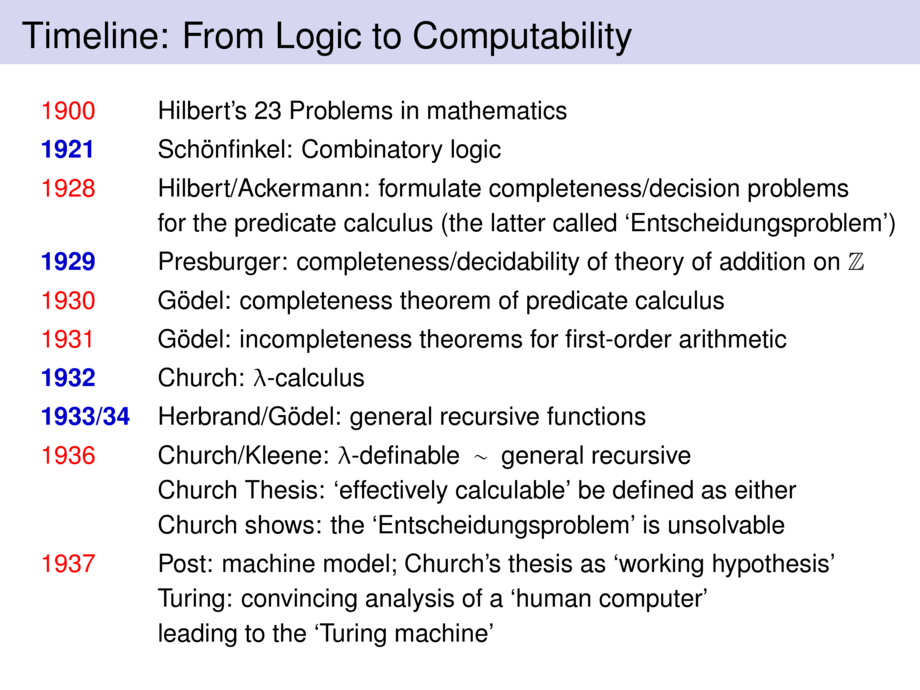



































































































162/162
\begin{frame}
\frametitle{Timeline: From Logic to Computability}
\vspace*{-2.75ex}
%
\begin{flushleft}
\scalebox{0.9}{%
\begin{tabular}{ll}
%
\hspace*{-4ex}
\alert{1900} & Hilbert's 23 Problems in mathematics
\pause{}\\[0.6ex]
\hspace*{-4ex}
\colemph{1921} & Sch\"{o}nfinkel: Combinatory logic
\pause{}\\[0.6ex]
\hspace*{-4ex}
\alert{1928} & Hilbert/Ackermann: formulate
completeness/decision problems
\\[0.3ex]
& for the predicate calculus
(the latter called `Entscheidungsproblem')
\pause{}\\[0.6ex]
\hspace*{-4ex}
\colemph{1929} & Presburger: completeness/decidability of theory of addition on $\mathbb{Z}$
\pause{}\\[0.6ex]
\hspace*{-4ex}
\alert{1930} & G\"{o}del: completeness theorem of predicate calculus
\pause{}\\[0.6ex]
\hspace*{-4ex}
\alert{1931} & G\"{o}del: incompleteness theorems for first-order arithmetic
\pause{}\\[0.6ex]
\hspace*{-4ex}
\colemph{1932} & Church: $\lambda$\nobreakdash-calculus
\pause{}\\[0.6ex]
\hspace*{-4ex}
\colemph{1933/34} & Herbrand/G\"{o}del: general recursive functions
\pause{}\\[0.6ex]
\hspace*{-4ex}
\alert{1936} & Church/Kleene: $\lambda$\nobreakdash-definable $\;\sim\;$
general recursive
\\[0.3ex]
& Church Thesis: `effectively calculable' be defined as either
\\[0.3ex]
& Church shows: the `Entscheidungsproblem' is unsolvable
\pause{}\\[0.6ex]
\hspace*{-4ex}
\alert{1937} & Post: machine model; Church's thesis as `working hypothesis'
\\[0.3ex]
& Turing: convincing analysis of a `human computer'
\\[0.3ex]
& leading to the `Turing machine'
%
\end{tabular}}
\end{flushleft}
\end{frame}

